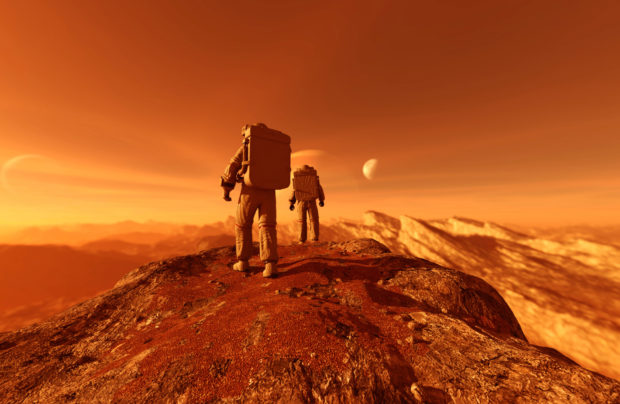
Erobots is an inventive new technology in the sexual domain to fulfill the sexual and emotional needs of astronauts. Image: iStock/chainatp via AFP Relaxnews
Although they are trained to live in isolated spaces for long periods, astronauts are still human beings, and some human needs become difficult to ignore over time. Among these are emotional and sexual needs, and a solution for this may be found in erobots, an inventive new technology in the sexual domain. Researchers Simon Dubé (Concordia University) and Dave Anctil (Laval University) are pioneers in the field.
Erobotics: robotics in service of human sexuality
Sex toys have long existed as an aid for sexual satisfaction. According to the two researchers, however, the social dimensions of human sexuality cannot be satisfied by these objects. This is where “erobots” come in. The term is a combination of the words “erotic” and “robot,” and refers to all robotic technologies developed around human sexuality. Examples of these are sex robots, erotic chatbots, and even virtual or augmented reality partners.
They are intended to provide enough physical and/or emotional intimacy to calm astronauts’ impulses and anxieties stemming from their isolation. Immersive and interactive experiences could even be made possible by combining erobots and sex toys. The researchers consider erobotics a potential entirely new field of study.
Emotional and sexual needs are far from trivial
When confronted with the many taboos surrounding sexuality, the researchers point to science, which has demonstrated that sexual and emotional needs are a fundamental part of human nature. These needs could even compromise a mission if they are not taken into account by space research. Dubé and Anctil argue that abstinence may not work for everyone and that erobotics are still the best solution to the question of human sexuality in space.
Necessary ethical considerations
Other researchers go further and are imagining further benefits that erobotics could provide. This interdisciplinary field could benefit the astronauts’ overall health, for example by monitoring their vital statistics. Erobotics could also be used for education and research. No fewer than 18 scientists have examined these considerations in the MIT Press’ publication “Robot Sex”. RGA
RELATED STORIES:
‘Peace and love across the universe’: NASA astronauts mark Ringo Starr’s 80th birthday
Robots may become heroes in war on coronavirus